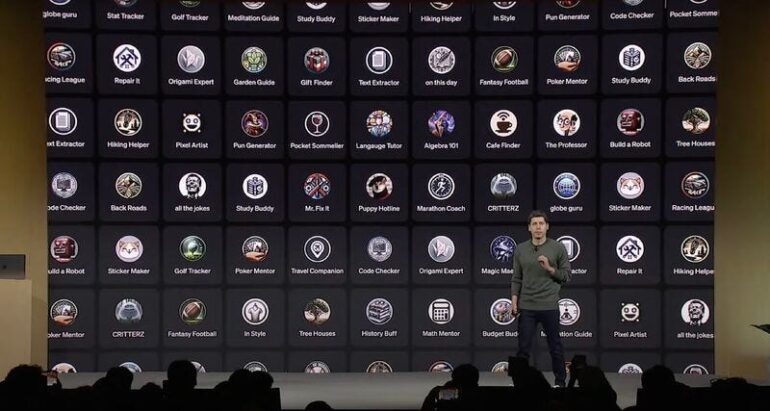TL;DR:
- OpenAI’s GPT Store, initially set for launch this year, will now debut in early 2024.
- The delay is attributed to a significant leadership shakeup that occurred in November.
- A memo sent to users and developers mentioned plans to enhance the platform’s features.
- The original launch announcement left many questions unanswered.
- OpenAI customers can still create and share GPTs but won’t participate in revenue-sharing until the store’s formal release.
Main AI News:
OpenAI’s highly anticipated GPT Store, originally slated for release this year, is now expected to make its debut in early 2024. This delay comes in the wake of a significant leadership shakeup that unfolded in November, shortly after the initial announcement.
Axios was the first to report this development, having obtained a memo addressed to users and developers. The memo stated, “We are now planning to launch the GPT Store early next year. While we had expected to release it this month, a few unexpected things have been keeping us busy!” It also outlined forthcoming enhancements to the new platform, including an improved configuration interface and debug messages.
The announcement of the store’s launch earlier this month at OpenAI’s Dev Day conference had piqued curiosity within the AI community. While a functional mockup of the store and a selection of fine-tuned models known as GPTs were available for inspection, there remained numerous unanswered questions.
During a Q&A session featuring the briefly dethroned CEO, Sam Altman, and CTO Mira Murati, inquiries regarding the company’s pricing strategy and developer compensation plans were met with a somewhat nebulous response, essentially boiling down to “we’ll see.”
Given the loose framework of the launch plan and the disruption caused by the brief but intense board-versus-CEO power struggle, the delay should not come as a significant surprise. With the winter holidays fast approaching, the prospect of releasing a major product amidst such turmoil, while simultaneously adjusting to a new board and addressing other pressing priorities, was likely untenable.
For current OpenAI customers, the ability to create and share GPTs with others remains intact. However, these models will not be publicly listed or eligible for participation in any potential revenue-sharing arrangements until the store is formally unveiled in 2024.
Conclusion:
The delay in OpenAI’s GPT Store launch, prompted by leadership changes, underscores the challenges in navigating a dynamic AI market. It highlights the importance of stability and clear strategies as AI companies seek to establish themselves and meet customer expectations in a rapidly evolving landscape.

